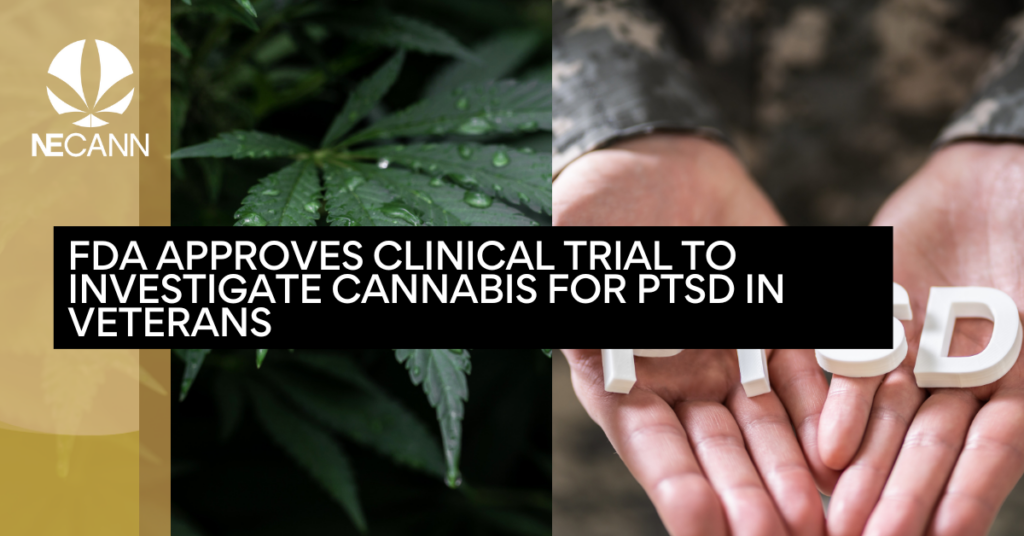In a significant move for medical cannabis research, the U.S. Food and Drug Administration (FDA) has approved a clinical trial to explore the potential benefits of smoking or vaping cannabis products to treat post-traumatic stress disorder (PTSD) among veterans. The study, which aims to provide vital insights into how cannabis can help manage PTSD symptoms, has been greenlit after years of negotiations between researchers and the FDA.
The trial, funded by the Michigan Veteran Marijuana Research Grant Program and sponsored by the Multidisciplinary Association for Psychedelic Studies (MAPS), will be conducted on 320 veterans experiencing moderate to severe PTSD. It is set to be a randomized, placebo-controlled study, meaning that participants will be randomly assigned to receive either cannabis products or a placebo.
The study has faced several delays since its inception in 2021, largely due to objections raised by the FDA. The agency initially expressed concerns over the safety of inhaling cannabis smoke, the self-titration dosing method—which would allow participants to adjust their cannabis intake based on perceived benefit—and the inclusion of high-potency products in the trial.
However, after three years of negotiations, MAPS announced that the FDA no longer objected to these aspects of the trial, clearing the path for the study to move forward. In a statement, MAPS expressed hope that this approval would pave the way for future research into cannabis as a viable medical treatment.
“After three years of negotiations with the FDA, this decision opens the door to future research into cannabis as a medical treatment, offering hope to millions,” MAPS stated.
Allison Coker, director of cannabis research at MAPS, emphasized that the study was designed to reflect the real-world usage of cannabis among veterans, many of whom already use medical cannabis to manage their PTSD symptoms. The decision to allow participants to self-titrate their dosages and use high-potency cannabis is critical to accurately replicating the practices of individuals already utilizing these products.
This approach is part of MAPS’ broader mission to gather robust, real-world evidence that could ultimately influence the medical community’s understanding of cannabis as a treatment for PTSD and other health conditions.
Cannabis has been studied for its potential therapeutic effects on various mental health disorders, including anxiety, depression, and PTSD. Some veterans have reported using cannabis to help manage symptoms of PTSD, such as hypervigilance, flashbacks, and anxiety. However, until now, large-scale clinical trials have been limited due to regulatory hurdles.
The new trial’s findings could be pivotal in shaping future treatment protocols for veterans, many of whom have limited options for managing PTSD through traditional medical treatments. If successful, the study could lead to greater acceptance of cannabis as a legitimate medical treatment within the broader healthcare system.
With the trial now underway, researchers, veterans, and the broader cannabis community are watching closely to see what the results will reveal. The outcome of this study could have profound implications for veterans’ mental health care and for the future of medical cannabis research.
As the trial progresses, it may also encourage further research into cannabis treatments for a variety of conditions, potentially opening the door for new therapies for those in need. For now, the focus remains on the hope that this groundbreaking study will provide much-needed relief for veterans living with PTSD.
Stay updated on the latest cannabis news by subscribing today.



